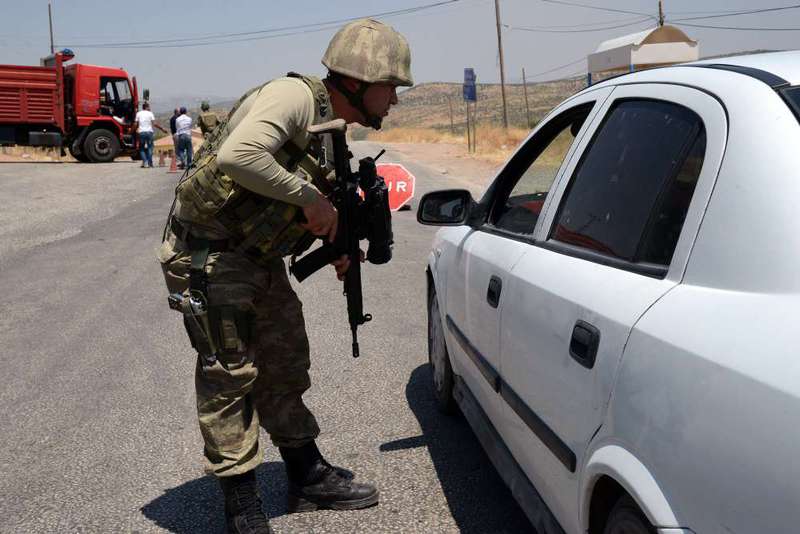PKK stews in its own juice

The PKK's recent bloody attacks in Turkey reaffirmed the group's status as a terrorist organization
The suicide bomb attack that killed 32 in Suruç in Gaziantep province was followed by tension-escalating statements from pro-Kurdish Peoples' Democratic Party (HDP) leaders targeting Ankara. In spite of this, Ankara said the first suspect of the blast was from the Islamic State of Iraq and al Sham (ISIS), but the HDP and supporters of the outlawed PKK once again alleged Ankara was supporting ISIS without putting forward any evidence. The call fom HDP Co-Chair Selahattin Demirtaş to enforce their own self-defense and to carry out security practices in the region opened the doors for new murders. The security of the Amara Culture Center where the Suruç bombing took place was already provided by the HDP municipality - they did not let the police do their job. But still, the PKK and the organizations linked to or close to the PKK have started to kill both civilians and security forces indiscriminately. The acts of killing soldiers, executing police officers in their homes and targeting civilians just because they have beards were followed by burning construction vehicles or hijacking ambulances.While the claims that Turkey supports ISIS blatantly had mounted, a soldier was killed in Kilis as a result of a cross-border attack from Syria by ISIS militants. Turkey launched airstrikes against ISIS positions close to the border followed by anti-terror operations against ISIS, the PKK and the outlawed Revolutionary People's Liberation Party-Front's (DHKP-C) camps in Turkey. Subsequently, Turkey hit PKK camps in northern Iraq. After all the bloodshed, the HDP accused Turkey of violating and ending the cease-fire, but the PKK already declared two weeks earlier in a statement issued on July 11 that the cease-fire was ended because of Turkey's construction of dams and roads in the region. According to reports, the reconciliation process started well in 2013, but tension started to rise gradually in 2014, while the PKK has been involved in almost 1,000 violent attacks in 2015 in Turkey including armed and bomb assaults.Ahead of the declaration of the reconciliation process in 2013, Turkey had hit PKK camps in northern Iraq for the last time in November 2012. The PKK was weakened. The reconciliation process, started by Ankara, was actually launched at the moment everyone least expected. In other words, the government had extended a peace stick to the other side of the table and said: "You have no option but peace."After ISIS seized Mosul in Iraq in 2014, the U.S., which chose to shape its policies in battling ISIS by overlooking the reasons that led to the rise of ISIS, could not come to an understanding with Turkey, which has persistently reiterated this problem. ISIS was expected to turn to Baghdad after Mosul, but somehow turned north and started to threaten the Kurdistan Regional Government (KRG) in Iraq. This was a great chance for the U.S. Washington started to bargain with Turkey using the Kurds as a tool. The KRG President Masoud Barzani did not fall into this trap, but the PKK did when ISIS attacked Kobani. After nine months of talks, now Washington has reached a deal with Ankara. The PKK, which let itself be used as a tool by the U.S. and which was excited with separatist dreams during that time is now feeling betrayed. The PKK chose to fall into this trap, abandoned the peace process and preferred to work against its real friends. Indeed, the PKK is stewing in its own juices.
Last Update: July 29, 2015 01:39
